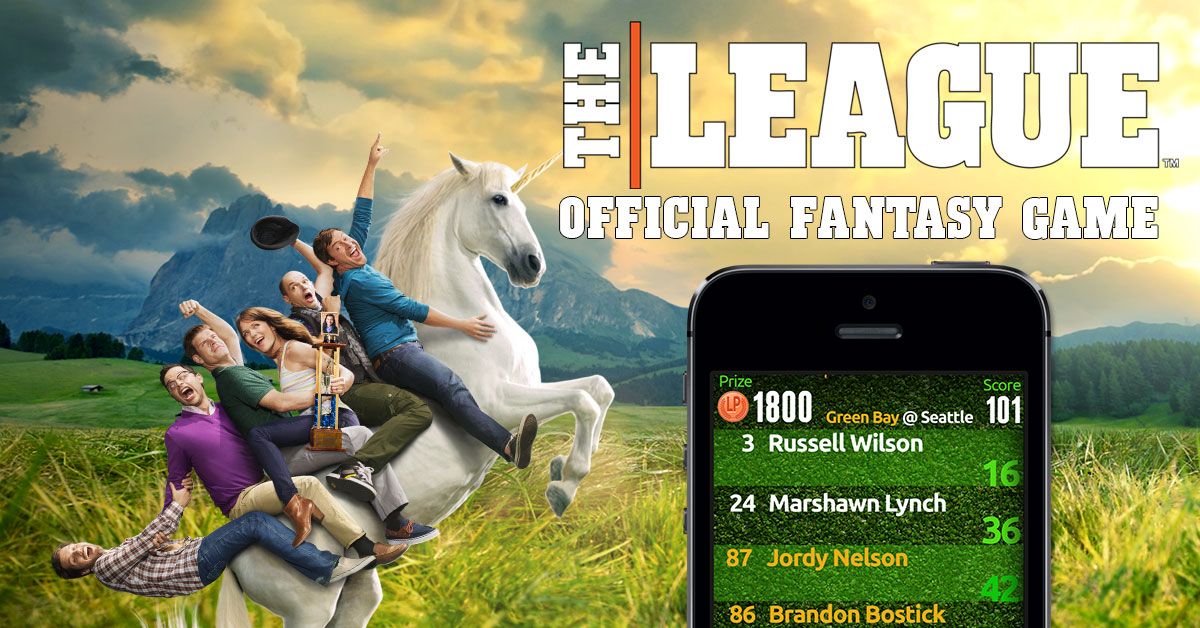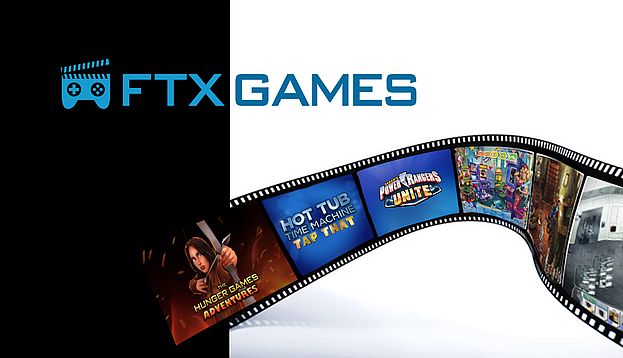Funtactix is a game company that’s reinvented itself several times in its history, and it’s in the process of reinventing itself yet again to take advantage of its strengths amidst a rapidly evolving game market. The company has been very successful with its Hunger Games Adventures mobile game, and has been rapidly building a portfolio of licensed games that covers a wide spectrum. The company, founded in 2006, is based out of New York with development studios in Jerusalem, Tel Aviv, and Los Angeles, and its team has seasoned veterans from companies like Microsoft, Sony, LucasArts and others.
Propelled by the huge success of Hunger Games Adventures, Funtactix is now in the process of rebranding itself as FTX Games, and working as a mobile game publisher to bring together top licenses with the best mobile developers around. New titles are coming based on licenses like Power Rangers, The League, and Hot Tub Time Machine, covering a wide range of genres and audiences. The [a]listdaily spoke with Casey Dickinson, Head of Publishing and General Manager, about the company’s new directions and what this says about the state of the mobile game industry.
 Casey Dickinson
Casey Dickinson
Please give us some background on Funtactix and how you arrived at where you are today.
Funtactix was founded in 2006 with a mission to create synchronous multiplayer action games that ran in browsers. The games required plug-ins, which proved to be a huge barrier to entry, and we made a pivot to Flash and from there started focusing on making entertainment-based games for Facebook. Then, like everybody else, we started branching out into mobile. That’s where we’ve been for the past five or six years, since I’ve been on board with the company.
As the only company at the time that was specifically focused on entertainment properties, we found some early success. We did some titles with Paramount, Rango and Mission: Impossible, and then attached ourselves to the rocket that became The Hunger Games. We’ve been working on The Hunger Games for more than three years. We launched day and date with the first film in 2012. From the outside, we’ve kind of been “the company that does The Hunger Games game” for the past couple of years. However, based on the success we had with The Hunger Games, we started being inundated with people bringing IP to us saying “we love what you did with The Hunger Games, we’d love you to make a game based this movie.”
What we found, in practice, is that that’s a very hard mode to scalel. You might have a film that is a perfect fit for a puzzle gameor a racing game or something else, and we were still a relatively small company and we didn’t have multiple development teams that were focused on individual genres. We’ve created a world-class publishing and production team. We saw an opportunity to leverage that experience by opening the door to co-development with thord-party developers. Over the past year or so we’ve been building out a portfolio of developers that we partner with and we co-develop with. This model allows us to scale, and to find the ideal development team with the right engine and skillset, and then leverage that as needed for the specific IP.

A good example of that is we did a game at the very beginning of the NFL football season with FXX, for the show The League. The League is all about these guys who play fantasy football together. We don’t know the first thing about making a fantasy football game, but happened to be pretty close with a studio in Los Angeles that had an innovative fantasy football app and was really looking for a way for them to stand out amongst the crowd. They are huge fans of The League, and so are we. We became the publisher and brought that deal together, and then managed the process for approvals and driving creative development. Certainly licensed IP-based games are a little bit more tricky to get approved and launched. It’s all about the process, the creative uses of the IP, the marketing, the PR around the actual launch, and then the live ops to support the fanbase once it’s out there..
Developers who haven’t worked with licensors before probably don’t understand just how much goes into making a licensing relationship work well, do they?
I think it’s a specific skill set and there’s a lot that goes into just developing reputation and level of trust. IP holders want to know their baby is going to be taken care of. We’ve also watched the market change. From the Hollywood side, this has been really interesting because traditionally this has been very much licensing-driven. When you go back to the console-focused days, movie-based licensed games were run out of licensing divisions where they were getting X amount of dollars up front, and then their work was done. It was fire and forget and the publisher had to scramble to put together a game where the margins were pretty tight, and the time frames had a very firm launch date where you were contractually obligated to get it out before the theatrical release. Then once it’s out there, it’s done. There’s no way for the theatrical team to communicate back with the player base that was created.
Now, with the change to mobile and social, that has changed. What’s really interesting to the studios is that there’s a lot of parties that are suddenly getting involved. You have the theatrical marketing team that says “Great, this is part of our social media strategy, this is part of our digital marketing. You bring us a couple of million users prior to the theatrical release that we can communicate with, that we can show trailers to, that we can promote the different elements of our marketing plan with. You can help us get butts in seats.”
Then the licensing team says, “Wait, we’re going to get paid when we do this and there is the potential for significant upside without a ceiling That sounds great, this is a money-making venture!” Then you have the home entertainment team that says “Fantastic! This game is going to live after the theatrical release, you guys are still going to be updating this game so we can be promoting the DVD sales and the digital downloads ” There’s just so much more that’s available, the way mobile and social games work, that wasn’t available on console games.
See the rest of this interview on the [a]listdaily to find out more about this interaction of Hollywood and mobile games and where it’s all heading.

